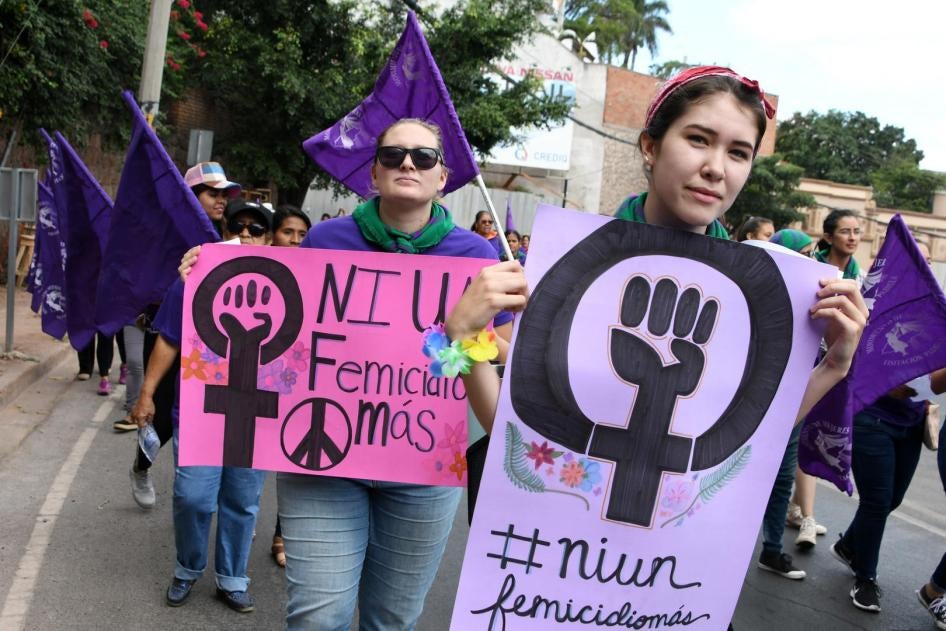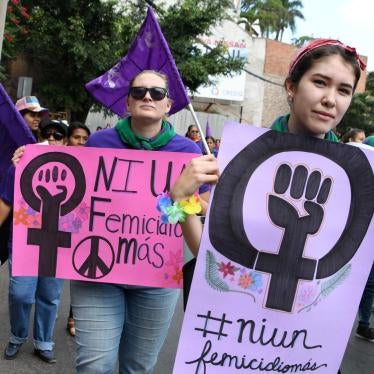On October 18 and 19, a committee of international women’s rights experts will review Honduras’ progress in implementing the Convention on the Elimination of Discrimination Against Women (CEDAW), an international treaty designed to uphold women’s and girls’ rights around the world.
Ahead of the review, Human Rights Watch submitted documentation to the committee on the terrible impact of Honduras’ total bans on abortion and emergency contraception, as well as discrimination and endemic violence against women and girls, particularly lesbian, bisexual, and transgender (LBT) women.
In June, Human Rights Watch also urged to President Xiomara Castro to end those abuses in a letter. In response, the government committed to uphold sexual and reproductive rights and to strengthen investigations on violence against women.
The CEDAW review will provide President Castro’s administration with an independent expert assessment of how it can better protect women’s and girls’ rights. The government should use the committee’s recommendations to develop concrete policies to uphold those rights.
Violence against women and girls is pervasive in Honduras. Because abortion is illegal in all circumstances, women and girls who have experienced sexual violence may be forced to continue an unwanted pregnancy against their wishes, perpetuating the cycle of violence women and girls face.
In its 2016 review of Honduras, the CEDAW Committee urged the government to decriminalize abortion, noting that the ban caused women and girls to seek unsafe abortions and increased maternal mortality.
Rampant gender-based violence and discrimination, and the impunity for those abuses, forces many women and girls, particularly LBT people, to leave their homes and become internally displaced or seek asylum abroad. The Committee has previously stated that displacement can further compound violations of women’s and girls’ rights, and has urged Honduras to address the violence causing it.
As a candidate, President Castro ran on a promise to protect human rights. Her government should deliver on that pledge by making a forceful commitment at the CEDAW review to protect the rights of Honduran women and girls to health and a life free of violence and discrimination. Nobody should live in fear because of their gender identity or sexual orientation.









